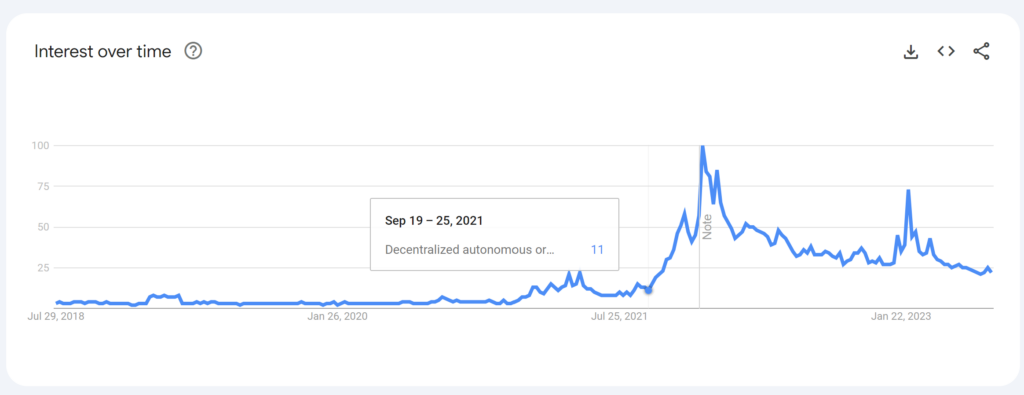2023-09-04

CDO at TX
Remember when Airbnb and Uber made sharing economy the hottest topic for start-ups? What started as individuals gaining more value for their assets has become a full-time job for many, distancing them from the original values that made them famous in the first place. Many Web3 enthusiast advocates that Decentralized Autonomous Organizations (DAOs) will make sharing economies great again. But it’s not happening for one simple reason: they are terrible at selling.
The sharing economy’s foundational principle is straightforward: You have people with assets that increase value when used by many. Airbnb allowed homeowners to monetize their spare rooms, while Uber made extra car seats a source of income. But as these platforms expanded, their user base professionalized, making them direct competitors to established sites like Booking.com and Hotels.com and local taxi companies. In turn, the platforms adopted a business model that maximizes the number of sale transactions and cut percentages from each sale.
And now we have Web3, which empowers individuals to own and share assets without an evil centralized entity coming in for a piece of your pie. A decentralized model could make a platform with lower prices or better profit returns for users. Even better, if homeowners and visitors become stakeholders in an “Airbnb DAO,” they could directly affect the decentralized platform’s development, user terms, and payment structures.
But DAOs alone aren’t going to drive that change.
The fundamental problems of DAOs
First of all, what many Web3 enthusiasts forget is that technology itself isn’t going to win the masses. You need a lot more than interoperable blockchains to compete against big players who pour money into customer acquisition, UX/UI design, customer service, and so on. There needs to be more than just being the best in Web3. You need to be the best in Web anything.

The democratized model of DAOs is both its strength and weakness. Several DAOs take a “design by committee” approach, which often ends up being ineffective and disappointing in true innovations. It’s like Henry Ford crowdsourcing ideas for faster transportation and receiving suggestions to make horses somehow faster than ever. You still need experienced professionals as leaders to make informed decisions. And recruiting those people can be hard when every major decision involves a rigorous process.
Some DAO governance models experiment with rotating leadership, autonomous subgroups, and transferring voting power to delegates or representatives. Even then, it’s hard to see that top talent would truly place the same commitment in the daily grind as start-up founders. Especially if the only guaranteed compensation involves speculating on token value.
The Hybrid Model – Let businesses handle demand for DAOs
DAOs are definitely part of the transition toward Web2.5 and the inevitable Web3 revolution, but they won’t do it alone. They have proven success in creating supply for their products, i.e., building protocols and networks and gathering data. However, they have yet to prove themselves in their demand, especially in highly competitive markets, which creates actual revenue and sustainability for their project.
A hybrid model where DAOs continue to work on the supply but leave the demand for business entities to solve offers the best of both worlds. Hivemapper, a Google Maps competitor, is a prime example of using Web3 tech to incentivize data collection while having a business entity to efficiently commercialize the data and create demand for it.
Enabling a structure where DAO members can passionately work on their projects and invite business entities to handle commercialization and product design can be the game-changer approach in the Web3 dynamic.
Drop us a message to discuss your project
We’ll get back to you as soon as possible.
Find out more
For information on how we can transform your sector or business, please get in touch using the contact details below.





